The weight issue is easy enough to compensate with by basically eating more meat and fat. To the point of satiation and even a bit beyond while including some sort of weight lifting and resistance training. At least that's what helped for me. As for the symptoms you're describing, that could be some kind of major die-off of certain bacteria being starved of sugar and carbs, but I don't know for sure. And if it's really getting to be that bad, then maybe you should introduce some carbs that you're okay with, like certain fruits and vegetables and see how you feel afterwards. Sally Norton has said that it's dangerous to go cold turkey if oxalate is the issue and better to gradually reduce the amount you take to give your body a chance to chelate it out of your system.my experience right now is that i am working with a doc who switched me to strict carnivore suddenly. i have read that is much rougher than transitioning and phasing out carbs gradually. but since i didn't do that, i am experiencing more severe symptoms. my back is so painful i have not been able to walk well and getting out of bed or from a chair can be excrutiating if not slow and careful.
this whole thing is so new i don't know what to expect and every new awful thing is scary. don't even know how much poop to expect since i hear it is much less on carnivore in general. i am experiencing some very strange waves of what i can only describe as cortisol flushes some nights, like last night, that are horrible with doom and gloom thougths, kept me up all night. last but not least, i came into this severely underweight, and have been nervous about that from the beginning since 99% of all the testimonials and reasons for people doing this in the first place is to LOSE weight. and i have indeed lost some weight but am afraid to get on the scale. that is the most concerning thing to me and i tend to catastrophise at times..
You are using an out of date browser. It may not display this or other websites correctly.
You should upgrade or use an alternative browser.
You should upgrade or use an alternative browser.
The Carnivore Diet
- Thread starter Gawan
- Start date
thank you! i am indeed stuffing myself as much as possible without throwing up. lol thing is i have no appetite so i go into a meal not hungry. i do realize cold turkey can cause some very troublesome side effects and oxalate dumping is what i highly suspect, as does my doc. he also suggesting having a carb or two here and there which i plan to do. i just don't want to go back to square one after going through all this for 23 days now, so am being very careful to just do a little when really feeling the need. had a cooked carrot last night and plan to get some blueberries today. i do minor weight lifting generally but my back has made that impossible. will figure out how to incorporate this somehow, tho. i know it's important. again, thank you for your thoughtful reply.The weight issue is easy enough to compensate with by basically eating more meat and fat. To the point of satiation and even a bit beyond while including some sort of weight lifting and resistance training. At least that's what helped for me. As for the symptoms you're describing, that could be some kind of major die-off of certain bacteria being starved of sugar and carbs, but I don't know for sure. And if it's really getting to be that bad, then maybe you should introduce some carbs that you're okay with, like certain fruits and vegetables and see how you feel afterwards. Sally Norton has said that it's dangerous to go cold turkey if oxalate is the issue and better to gradually reduce the amount you take to give your body a chance to chelate it out of your system.
TheTodd
Jedi Council Member
Paul Saladino, one of the main prominents of the carnivore diet "officialy" became an omnivore, but an animal based omnivore.
Long term ketosis didn't work with him very well because, in his words, created severe electrolyte deficiencies which manifasted as heart palpitations, muscle cramps and sleep disturbances. So, lots of benefits in the begining but end up running into problems long term.
Long term ketosis didn't work with him very well because, in his words, created severe electrolyte deficiencies which manifasted as heart palpitations, muscle cramps and sleep disturbances. So, lots of benefits in the begining but end up running into problems long term.
Amor
Jedi
From my point of view cooking is sort of nutrient sacrafice for a sense of safety which is nor proven nor disproven. There is no ready answer for the matter and requires some personal experimentation, understanding of nature, animals, the evolution of biology and connecting the dots of different research. Actually the information you shared on thiamine got me thinking why is that predators dont need to cook their meat and they are fine while we human do so. In one of your videos you talked about how our bodies uses reserves to compensate the lacking nutrients in the food to break it down and absorb it. What if that is happening with cooked meat aswell? Because through cooking today its no mystery that food loses nutrients. Ofcourse when it comes to predators its the acidity of stomach killing parasites. But there are so many of them that some may be considered natural inhabitants like e. Coli. In my view it seems impractical to lose the nutritients. I asked my self how to naturally and most effectively a human could heal him/her self on wild conditions especially the thiamine part after long period of carb burning. Well so far raw meat is the best answer I got and almost no carbs except for seasonal fruit and berries in very small amounts because of fermentation may disrupt our bodies natural stomach acid production or change the acidity to effectively break down raw meat. Thats not all. Its nice that in civilized world like today we can have modern day solutions to modern day problems and solve it, but there be times coming where we can't rely on the modern world anymore. And solution to our generational lifestyle problems can be solved by changing our generational lifestyle and way of eating. It is nice to have a quick solution but depending on individual if someone has been burning carbs for 20 30 years the person might have to do the healing naturally for longer period and might take several years to return to the primal health hardwired in the system. Thanks to modern day science we can achieve that much quicker- Another thing we have to ask our selves is when and how long do humans cook their food and versus how long have we been eating raw meat through out the human evolution because the memory is in the DNA and the inertia of our system functions are still there.There is a lot to consider here, and I have been toying with the idea of raw meat-consumption... But I am tending toward thinking that cooked/marinated/processed/fermented meat is better suited for human consumption. This is not based on any hard evidence per se, since there are good arguments on either side.
However, my consideration is based on something I have heard Jordan Peterson say many times, which I believe might apply in this context. It has to do with the comparison between conservatism and liberalism, and why a safe bet would be to lean toward moderate conservatism. Conservatism is based on conserving what actually works and has been tried and tested over long periods of time.
Human beings have been cooking meat for a very long time, and it appears to work quite well. If it was so dangerous, then I dont believe we would have maintained this practice. I try to look at it this way: Eating raw meat take less time, less preparation, less effort, and ultimately less energy. Whereas cooking meat is clearly more expensive with regard to time and energy expenditure. From an evolutionary/economic perspective, why would humans have opted for the more expensive option if it did not provide sufficient returns?
I suspect that cooked meat may in fact provide superior returns (nutritionally speaking), hence the reason why humanity was willing to invest the extra time and energy in preparation.
However, a similar argument could be made for wheat/grain consumption, which I DON'T think was a good choice on the part of humanity. This is all speculation, so take it for what it is worth.
Because through cooking today its no mystery that food loses nutrients.
I think that is an oversimplification. Cooking does reduce vitamin and mineral content in some foods, but increases it’s absorption, mainly by ‘predigesting’ the food in the cooking process. Same with meat: It somewhat reduces content in vitamins and minerals, but does partially break down fibrous tissue that otherwise would not be able to be absorbed.
Which way the balance tips very much depends on a lot of factors, like cooking method, cooking time, quality of base foods etc.
For further info see here (Caveat: It’s not a very good article, there are many inaccuracies I think (like linking grilled meat to cancer which I think is baloney), but gives you a quick overview).
Amor
Jedi
Not only vitamin and mineral contentI think that is an oversimplification. Cooking does reduce vitamin and mineral content in some foods, but increases it’s absorption, mainly by ‘predigesting’ the food in the cooking process. Same with meat: It somewhat reduces content in vitamins and minerals, but does partially break down fibrous tissue that otherwise would not be able to be absorbed.
Which way the balance tips very much depends on a lot of factors, like cooking method, cooking time, quality of base foods etc.
For further info see here (Caveat: It’s not a very good article, there are many inaccuracies I think (like linking grilled meat to cancer which I think is baloney), but gives you a quick overview).
Here is a definition of word denaturation:
denaturation, in biology, process modifying the molecular structure of a protein. Denaturation involves the breaking of many of the weak linkages, or bonds (e.g., hydrogen bonds), within a protein molecule that are responsible for the highly ordered structure of the protein in its natural (native) state. Denatured proteins have a looser, more random structure; most are insoluble. Denaturation can be brought about in various ways—e.g., by heating, by treatment with alkali, acid, urea, or detergents, and by vigorous shaking.
The original structure of some proteins can be regenerated upon removal of the denaturing agent and restoration of conditions favouring the native state. Proteins subject to this process, called renaturation, include serum albumin from blood, hemoglobin (the oxygen-carrying pigment of red blood cells), and the enzyme ribonuclease. The denaturation of many proteins, such as egg white, is irreversible. A common consequence of denaturation is loss of biological activity (e.g., loss of the catalytic ability of an enzyme).
Source:
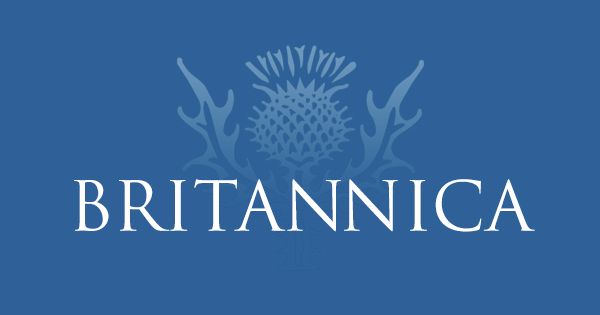
denaturation | Definition, Examples, & Facts
denaturation, in biology, process modifying the molecular structure of a protein. Denaturation involves the breaking of many of the weak linkages, or bonds (e.g., hydrogen bonds), within a protein molecule that are responsible for the highly ordered structure of the protein in its natural...
www.britannica.com
Here's a small list of some articles from SOTT that show that there are advantages to cooking food:
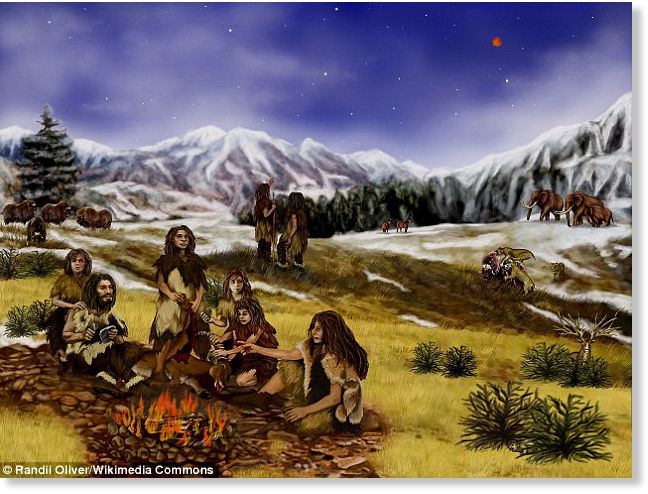
 www.sott.net
www.sott.net
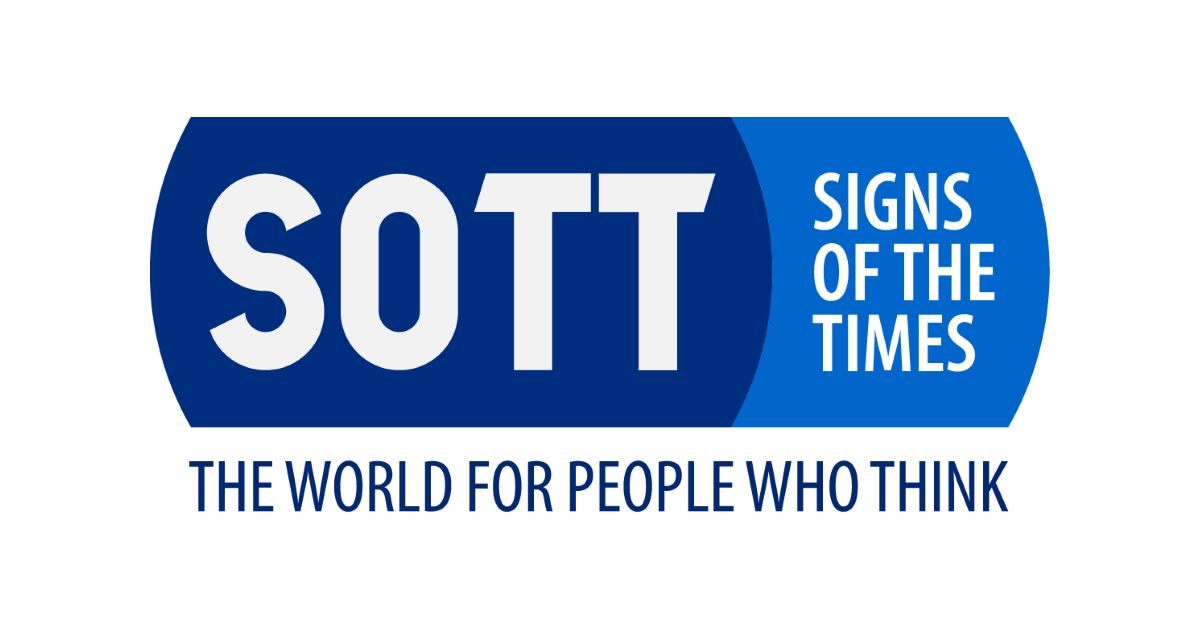
 www.sott.net
www.sott.net

 www.sott.net
www.sott.net
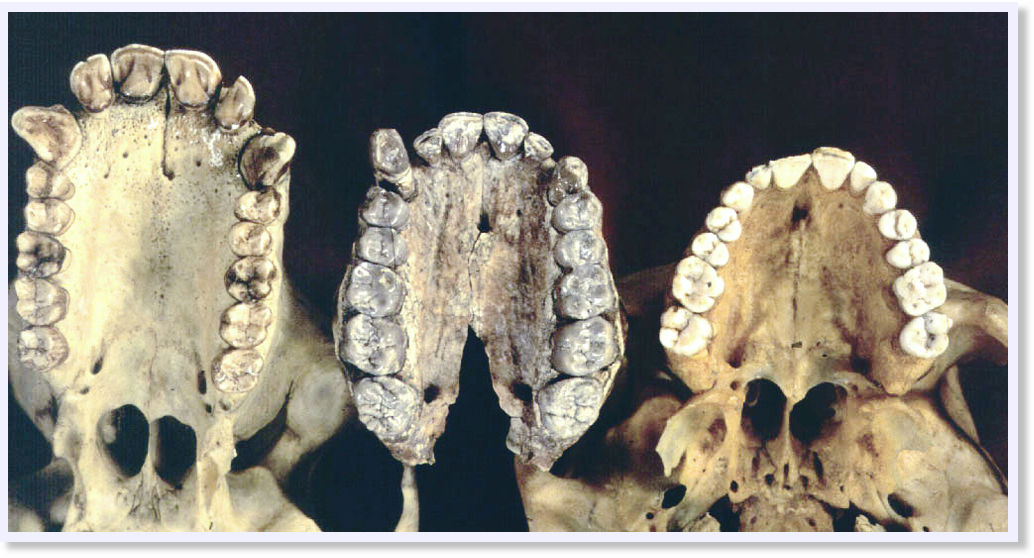
 www.sott.net
www.sott.net
What are some of the benefits of cooking food? More energy available, being able to develop larger brains, killing of parasites/pathogens.

Did our early ancestors start cooking to make carrion safe to eat?
Early humans may have first started cooking their food to make carrion safer for them to eat, new research has suggested. Anthropologists at Harvard University in Cambridge, Massachusetts, have found humans scavenging for meat from carrion would...

Sorry, vegans: Eating meat and cooking food is how humans got their big brains
Vegetarian, vegan and raw diets can be healthful, probably far more healthful than the typical American diet. But to call these diets "natural" for humans is a bit of a stretch in terms of evolution, according to two recent studies. Eating meat...

Cavemen Knew It: Cooked Meat Offers More Energy
Our ancestors shifted away from raw meat 1.9 million years ago Cooked meat provides more energy than raw meat and may have helped drive human evolution, according to a new study. The finding that cooking increases the energy we derive from meat...

Food For Thought: Meat-Based Diet Made Us Smarter
Our earliest ancestors ate their food raw - fruit, leaves, maybe some nuts. When they ventured down onto land, they added things like underground tubers, roots and berries. It wasn't a very high-calorie diet, so to get the energy you needed, you...
What are some of the benefits of cooking food? More energy available, being able to develop larger brains, killing of parasites/pathogens.
Amor
Jedi
What will give more energy, warm fat or cold fat?Here's a small list of some articles from SOTT that show that there are advantages to cooking food:

Did our early ancestors start cooking to make carrion safe to eat?
Early humans may have first started cooking their food to make carrion safer for them to eat, new research has suggested. Anthropologists at Harvard University in Cambridge, Massachusetts, have found humans scavenging for meat from carrion would...www.sott.net

Sorry, vegans: Eating meat and cooking food is how humans got their big brains
Vegetarian, vegan and raw diets can be healthful, probably far more healthful than the typical American diet. But to call these diets "natural" for humans is a bit of a stretch in terms of evolution, according to two recent studies. Eating meat...www.sott.net

Cavemen Knew It: Cooked Meat Offers More Energy
Our ancestors shifted away from raw meat 1.9 million years ago Cooked meat provides more energy than raw meat and may have helped drive human evolution, according to a new study. The finding that cooking increases the energy we derive from meat...www.sott.net

Food For Thought: Meat-Based Diet Made Us Smarter
Our earliest ancestors ate their food raw - fruit, leaves, maybe some nuts. When they ventured down onto land, they added things like underground tubers, roots and berries. It wasn't a very high-calorie diet, so to get the energy you needed, you...www.sott.net
What are some of the benefits of cooking food? More energy available, being able to develop larger brains, killing of parasites/pathogens.
Amor
Jedi
Raw meat is nothing new and have been part of many cultures:
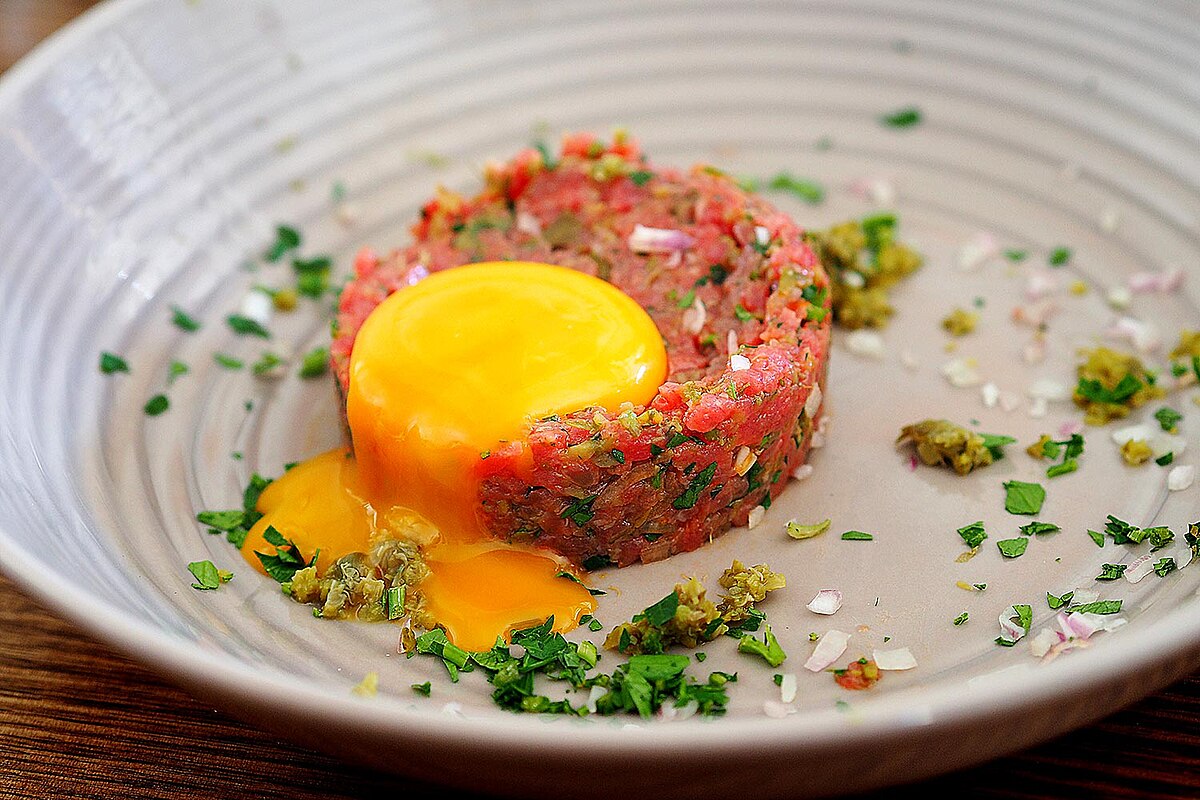
 en.m.wikipedia.org
en.m.wikipedia.org

 www.greatbritishchefs.com
www.greatbritishchefs.com
 www.bonappetit.com
www.bonappetit.com
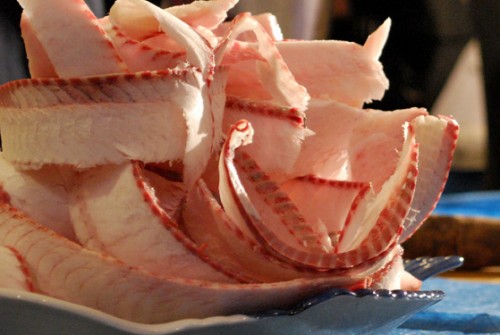
 www.languagesoftheworld.info
www.languagesoftheworld.info
One of the arguments have been "if ancestors cooked their food probably it was practical to the very day"
Well some ancestors have been driven by agriculture and it has been done to the very day and it is practical to a certain limit except the loss of personal freedom and nutrient depletion of the land, not to mention the nutritional disbalance in the animal fat, protein, carbs ratio depending on the genetic profile.
Ofcourse it was probably useful to preserve meat for later use, but what about dried meat?
Generally it is dried at 54 - 60 degrees Celsius but its not the heat that kills the bacteria but the evaporation of moisture through which bacteria can travel in the dried meat. At higher degrees the pathogen cell starts to deform, change its structure and pathogen enzymes denatures meaning they cannot breakdown food and starve to death.
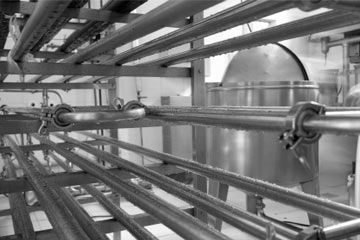
 science.howstuffworks.com
science.howstuffworks.com
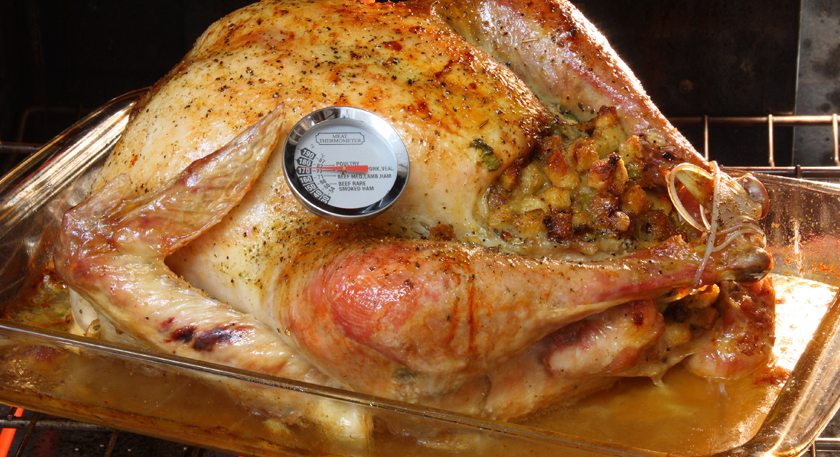
 wardsworld.wardsci.com
In this article the pasteurisation process of milk and the 65 degrees Celsius doesn't kill all the "harmful" bacteria nor you do want to do that
wardsworld.wardsci.com
In this article the pasteurisation process of milk and the 65 degrees Celsius doesn't kill all the "harmful" bacteria nor you do want to do that
When it comes to bacteria they are everywhere even in arctic.
Another thing that bothers me is rendered fat problem when cooking meat and the hassle to avoid it from dripping into the fire.

Steak tartare - Wikipedia
 en.m.wikipedia.org
en.m.wikipedia.org

7 Amazing Raw Beef Dishes From Around The World
See how different cultures take raw meat and, with a few simple touches, turn it into something incredible.
15 Raw Meat Dishes from Around the World
Steak tartare was just the beginning. We've rounded up 15 of the world's finest raw meat dishes, from Ethiopian kitfo to the parisa of (yup) South Texas

The cuisines of Siberia - Languages Of The World
[This post was originally published in April 2012] Since Siberia is distinguished by harsh climates, its inhabitants – both the indigenous peoples and the Russian settlers – had to develop unique culinary approaches in order to utilize the region’s scanty foods, adapt to the cold temperatures...
One of the arguments have been "if ancestors cooked their food probably it was practical to the very day"
Well some ancestors have been driven by agriculture and it has been done to the very day and it is practical to a certain limit except the loss of personal freedom and nutrient depletion of the land, not to mention the nutritional disbalance in the animal fat, protein, carbs ratio depending on the genetic profile.
Ofcourse it was probably useful to preserve meat for later use, but what about dried meat?
Generally it is dried at 54 - 60 degrees Celsius but its not the heat that kills the bacteria but the evaporation of moisture through which bacteria can travel in the dried meat. At higher degrees the pathogen cell starts to deform, change its structure and pathogen enzymes denatures meaning they cannot breakdown food and starve to death.

How Pasteurization Works
Does pasteurization kill all bacteria efficiently? Find out how pasteurization kills bacteria in this section.
Fowl play: How heat kills the bacteria in your Thanksgiving turkey
The students in your class will be fascinated by learning how bacteria and denatured proteins are connected to their holiday meal's safety.
When it comes to bacteria they are everywhere even in arctic.
Another thing that bothers me is rendered fat problem when cooking meat and the hassle to avoid it from dripping into the fire.
If you read those articles, that should answer your question.What will give more energy, warm fat or cold fat?
Amor
Jedi
I read them and there was information on rats eating raw vs cooked meat and they got more energy from the cooked. The reason I ask about warm fat vs cold fat is because the article doesn't tell us whether the cooked meat was warm or cold and the same goes to raw meat because in wilderness raw meat that our ancestors would get, most probably it would be warm. C's have mentioned that heat in general is good for us and if we are poorly prepared for cold environment we need more energy to keep our bodies warm. When cooked meat is eaten cold our bodies will have to use extra energy to heat up the food especially fats versus if meat was freshly cooked.If you read those articles, that should answer your question.
Amor
Jedi
Dont know where to put so I put it here.
What I found about beef tapeworms which is also called as Taenia Saginata and I asked my self how cattle gets infected and oh my I were surprised by what cdc is saying. Here goes the information:
"Human taeniasis is a parasitic infection caused by three tapeworm species, T. saginata (known as the beef tapeworm), T. solium (pork tapeworm), and T. asiatica (the Asian tapeworm). Humans are the only hosts for these Taenia tapeworms. Humans pass the tapeworm segments and/or eggs in feces and contaminate the soil in areas where sanitation is poor. Taenia eggs can survive in a moist environment and remain infective for days to months. Cows and pigs become infected after feeding in areas that are contaminated with Taenia eggs from human feces. Once inside the cow or pig, the Taenia eggs hatch in the animal’s intestine and migrate to striated muscle to develop into cysticerci, causing a disease known as cysticercosis. Cysticerci can survive for several years in animal muscle. Humans become infected with tapeworms when they eat raw or undercooked beef or pork containing infective cysticerci. Once inside humans, Taenia cysticerci migrate to the small intestine and mature to adult tapeworms, which produce segments and eggs that are passed in feces."
 www.cdc.gov
Nothing strange that we need to cook our stakes if we don't want to get human shit back at our faces so to say.
www.cdc.gov
Nothing strange that we need to cook our stakes if we don't want to get human shit back at our faces so to say.
What I found about beef tapeworms which is also called as Taenia Saginata and I asked my self how cattle gets infected and oh my I were surprised by what cdc is saying. Here goes the information:
"Human taeniasis is a parasitic infection caused by three tapeworm species, T. saginata (known as the beef tapeworm), T. solium (pork tapeworm), and T. asiatica (the Asian tapeworm). Humans are the only hosts for these Taenia tapeworms. Humans pass the tapeworm segments and/or eggs in feces and contaminate the soil in areas where sanitation is poor. Taenia eggs can survive in a moist environment and remain infective for days to months. Cows and pigs become infected after feeding in areas that are contaminated with Taenia eggs from human feces. Once inside the cow or pig, the Taenia eggs hatch in the animal’s intestine and migrate to striated muscle to develop into cysticerci, causing a disease known as cysticercosis. Cysticerci can survive for several years in animal muscle. Humans become infected with tapeworms when they eat raw or undercooked beef or pork containing infective cysticerci. Once inside humans, Taenia cysticerci migrate to the small intestine and mature to adult tapeworms, which produce segments and eggs that are passed in feces."
CDC - Taeniasis - Disease
A parasite is an organism that lives on or in a host and gets its food from or at the expense of its host. Parasites can cause disease in humans.
I read them and there was information on rats eating raw vs cooked meat and they got more energy from the cooked. The reason I ask about warm fat vs cold fat is because the article doesn't tell us whether the cooked meat was warm or cold and the same goes to raw meat because in wilderness raw meat that our ancestors would get, most probably it would be warm. C's have mentioned that heat in general is good for us and if we are poorly prepared for cold environment we need more energy to keep our bodies warm. When cooked meat is eaten cold our bodies will have to use extra energy to heat up the food especially fats versus if meat was freshly cooked.
Ok, but who wants to eat raw or cold meat and fat in the winter? Your body is already expending more energy during that time to keep itself warm, why would you tax it by eating cold food? People who live in perpetually cold climates are not eating only raw meat and fat, they may eat some raw blubber or fish roe, but they aren’t consuming only cold foods.
If we look to indigenous cultures that are still practicing a traditional lifestyle I think we will find what humans should be doing as far as food practices go. And that would be eating high fat diets that are cooked with a small percentage of food still eaten raw.
It makes zero sense (to me at least) to focus on a raw diet. I mean do what you want but you won’t catch me eating much raw unless it’s sushi or ceviche (which is still semi cooked).
Amor
Jedi
Well lets not forget shelter as being one of the human needs which means no matter how much food you have cold or warm without a proper shelter we are done. I dont eat raw meat that much my self, but there is this nagging question why at every corner when I am toying with idea. Ofcourse its a personal thing and when it comes to taste I think it tastes much better than raw vegetables.Ok, but who wants to eat raw or cold meat and fat in the winter? Your body is already expending more energy during that time to keep itself warm, why would you tax it by eating cold food? People who live in perpetually cold climates are not eating only raw meat and fat, they may eat some raw blubber or fish roe, but they aren’t consuming only cold foods.
If we look to indigenous cultures that are still practicing a traditional lifestyle I think we will find what humans should be doing as far as food practices go. And that would be eating high fat diets that are cooked with a small percentage of food still eaten raw.
It makes zero sense (to me at least) to focus on a raw diet. I mean do what you want but you won’t catch me eating much raw unless it’s sushi or ceviche (which is still semi cooked).
Trending content
-
Thread 'Coronavirus Pandemic: Apocalypse Now! Or exaggerated scare story?'
- wanderingthomas
Replies: 30K -
-
-
